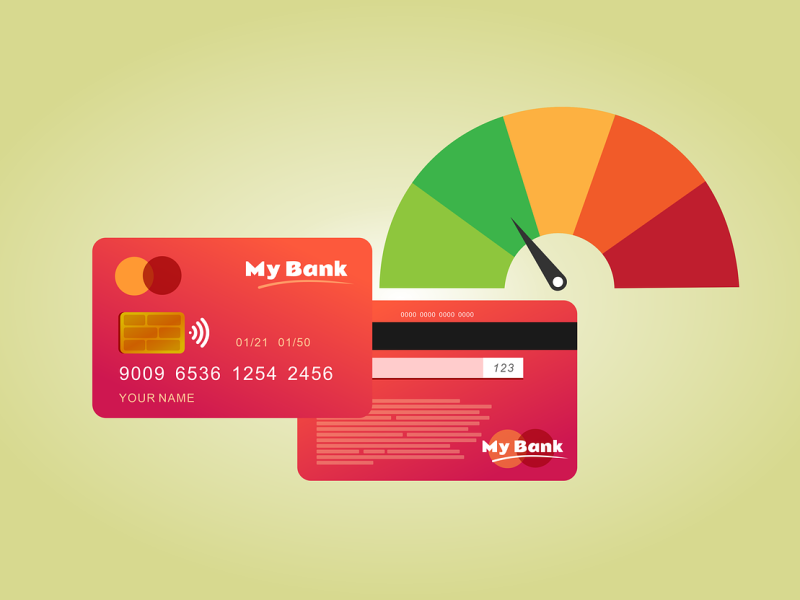Understanding how to check your credit score is a cornerstone of financial health. Whether you’re applying for a loan, renting an apartment, or just aiming to keep a close eye on your credit health, knowing your credit score and how it’s calculated is crucial.
This guide will empower you with the knowledge to access your credit score for free, manage your credit wisely, and ensure that your personal finance narrative is one of success.
How Can I Check My Credit Score for Free?
Checking your credit score doesn’t have to cost a penny. Start by introducing yourself to the free resources available:
- AnnualCreditReport.com presents an opportunity to request a free credit report annually from each of the three major credit bureaus: Equifax, Experian, and TransUnion. It’s your gateway to understanding your credit status without any hidden charges.
- Free credit monitoring services such as Credit Karma or Credit Sesame provide access to your credit score, often updated regularly, and include tools to keep your financial health on track.
- Many banks and credit card companies offer complimentary credit score access as part of their customer service. It’s worth checking with your financial institution to leverage these benefits.
- Financial management apps have redefined personal finance, with many offering credit score tracking as an intrinsic feature to help you stay informed.
When seeking your credit score freely, be mindful of offers that seem too generous:
- Avoid offers asking for credit card information—they might incur charges after an initial trial period.
- Always read the fine print to avoid unintended subscriptions.
Several reputable sources can provide free access to your credit score. Utilize these, but remain vigilant to avoid fees and subscriptions you didn’t sign up for.
How Often Should I Check My Credit Score?
The frequency of credit score checks is pivotal in maintaining credit health:
- It’s advisable to review your credit score annually. This routine check-up ensures accuracy and can help spot identity theft or errors early.
- If you’re thinking about major financing, such as a mortgage, more frequent checks—like quarterly or even monthly—may be advisable.
- Post identity theft or fraud, closer monitoring can help swiftly address irregularities.
Recognising the types of inquiries is essential:
- Soft inquiries occur when you check your own score and don’t affect it.
- Hard inquiries are made by lenders during credit checks for lending decisions and can lower your score if they’re numerous.
Regular credit score reviews are important for your financial well-being. Remember the distinction between soft and hard inquiries, as only the latter can impact your score negatively.
What Factors Affect My Credit Score?
Your credit score is a reflection of several financial behaviours:
Payment history is the strength of credit scores. Consistent, on-time payments enhance your score, while delinquencies harm it.
Credit Utilisation Ratio: Keep your balances low relative to your credit limits; aim for below 30% to maintain a healthy score.
Length of Credit History: The longer your history of good credit management, the better it is for your score.
Types of Credit: Demonstrate your credit management skills across a variety of accounts—installment loans, credit cards, and mortgages, for example.
New Credit and Inquiries: Frequent, new accounts or numerous hard inquiries could raise flags that you’re a higher credit risk.
Within each of these factors, certain nuances play a role:
- Late payments 30 days past due are more detrimental than those a few days late.
- The mix of credit should be natural, not forced; opening accounts you don’t need can backfire.
Time yourself: Space out your credit applications to avoid a cluster of hard inquiries.
In essence, a confluence of responsible behaviors and strategic decision-making shapes your credit score. Stay disciplined, and your score will reflect your diligence.
Will Checking My Credit Score Impact It Negatively?
Let’s demystify one common misconception:
- Reviewing your own credit score is a soft inquiry and will not damage your credit standing. Embrace regular monitoring—it’s a step toward financial empowerment.
- This contrasts with hard inquiries, which lenders perform and may have a minor impact on your credit score if you have too many in a short time.
Understanding this difference is empowering:
- It assures that you can and should check your score without fear.
- Proactive credit management means staying informed, and safe methods are available to do so.
Frequently checking your credit score is an excellent practice that will not harm your credit. Stay informed responsibly, and your credit score will remain untouched.
Where Can I Find Detailed Explanations of the Items on My Credit Report?
If the numbers and terms on your credit report seem cryptic, here’s how to decode them:
- The major credit bureaus provide a free annual credit report with detailed accounts and explanations on your credit activity.
- AnnualCreditReport.com is the authorized source for these reports, offering clear insights into your credit standing.
- For tailored explanations and assistance, services like Credit Karma and myFICO offer detailed breakdowns and interpretations of the factors affecting your score.
Taking a deeper dive:
- If discrepancies arise, the bureaus’ customer service can aid in deciphering complex entries.
- The bureau websites typically harbor comprehensive guides and FAQs to further clarify report items.
- For a personal touch, consider a credit counselor’s guidance to demystify your report.
Understanding the line items of your credit report is crucial for managing your credit health. Utilize the tools and resources available to you, and don’t hesitate to reach out for professional advice.
Empower Your Financial Journey
Your credit score is more than just a number—it’s a snapshot of your financial discipline and a predictor of your financial future. By tapping into the free resources available for regularly checking your score, your arm yourself with the knowledge to improve and protect your credit health.
Addressing the factors that influence your score directly contributes to a robust financial standing, and misinformation about the impact of checking your score can no longer hinder your progress. Your credit report holds the detailed story of your financial journey, and now you possess the key to translating it.
Embrace these principles, and watch as doors open to a brighter financial future, all starting with the empowering step of checking your credit score.
Remember, financial literacy is not just about reading numbers—it’s about reading the story they tell.






